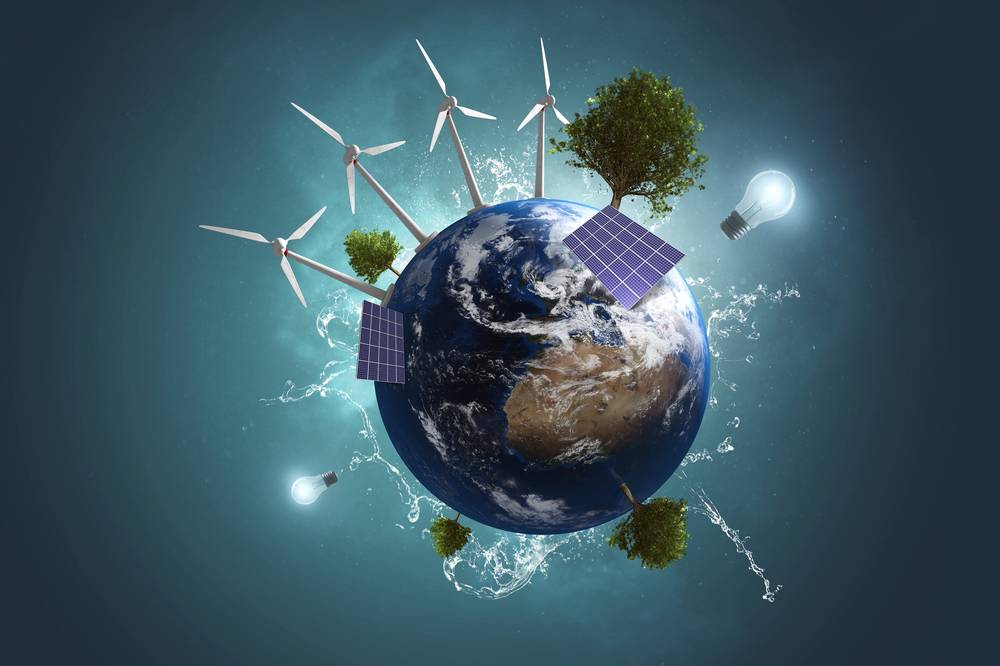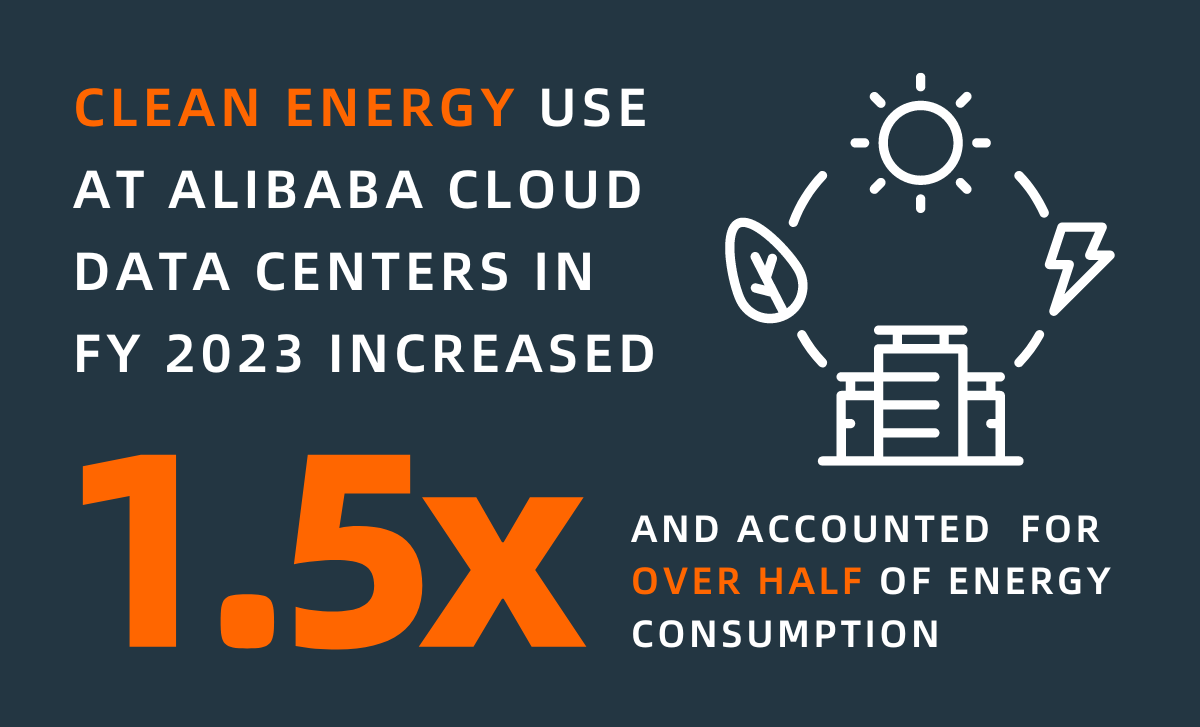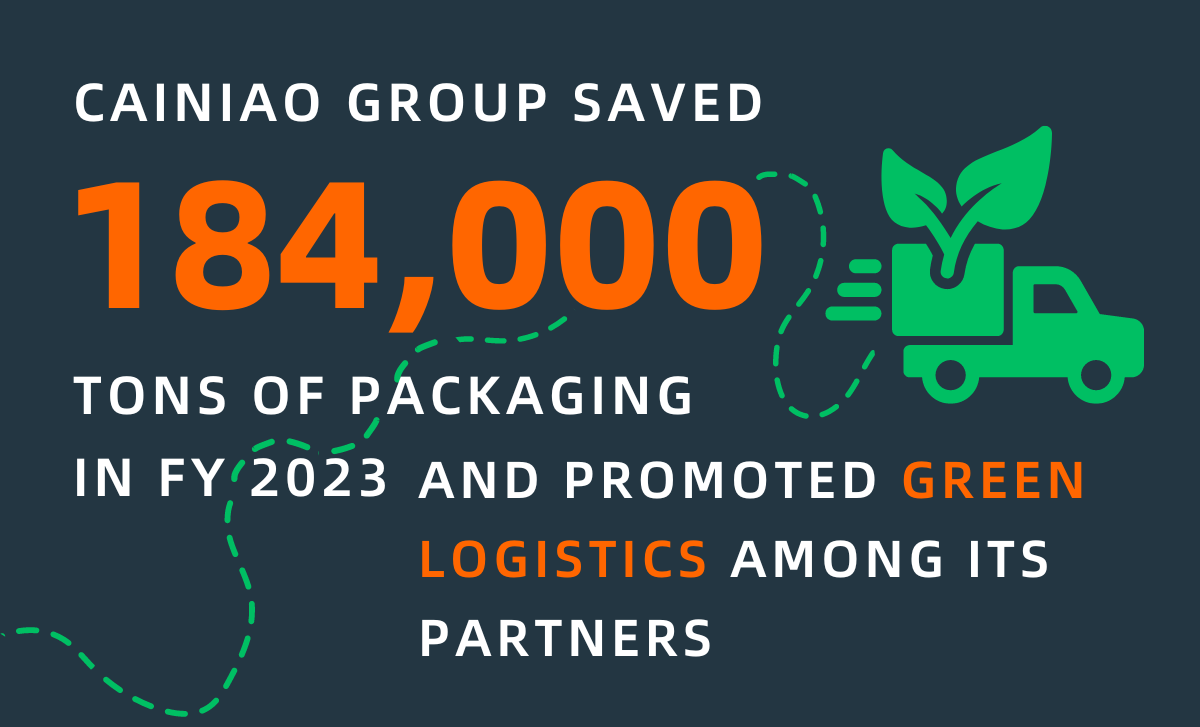
Photo credit: Shutterstock
Alibaba Group cut net carbon emissions from its direct operations by 12.9% over its fiscal year, according to the company’s annual Environmental, Social and Governance (ESG) report published on Monday.
The Hangzhou-based company is tapping smart energy management and increasing the use of clean energy as it strives to hit its goal of carbon neutrality by 2030.
In addition to slashing net emissions in its operations, Alibaba reported a 22.907 million metric tons decline in carbon dioxide equivalent (MtCO2e) from across its broader ecosystem in its fiscal year running from April 1, 2022 to March 31, 2023.
“Over the past year, we have worked to deliver high-quality achievement of our established carbon neutrality goals,” said Alibaba Group Chairman and CEO Daniel Zhang in the report.
The company has leveraged its platform power to promote decarbonization across its wider ecosystem, with participants and partners spanning commerce, logistics and cloud computing.
While Alibaba has provided progress on its sustainability efforts in its 2022 report, this is the first time that it has revealed progress towards its Scope 3+ goal of slashing 1.5 gigatons of carbon emissions across its digital ecosystem by 2035.
Alibaba’s cloud computing subsidiary is a step closer to its goal of having its global data centers running entirely on clean energy by 2030, the report shared.
The proportion of clean electricity generated from sources such as solar, water and wind used in its self-built data centers in China jumped from 21.6% in its 2022 fiscal year to 53.9% in its 2023 fiscal year.
The overall power usage effectiveness of its data centers, total facility power over IT equipment energy, declined to 1.215 in the period from 1.247 a year earlier due to increased use of energy-saving technology such as liquid-cooling server technology and power management optimization.

On average, the industry average stood at 1.58 in 2023 globally, according to an annual survey from the digital infrastructure advisory organization Uptime Institute.
By replacing traditional IT with cloud computing, Alibaba Cloud is helping its corporate users boost efficiency and reduce emissions.
Alibaba Cloud users in China can avoid 85.5% of emissions by adopting cloud server technology, according to a recent report from global climate consultancy Carbon Trust commissioned by Alibaba Cloud.
Meanwhile, the cloud platform’s AI-driven sustainability platform Energy Expert has helped 2,580 enterprises globally to monitor, analyze and optimize their carbon emission since its launch as of March 31.
In collaboration with its partners, Alibaba has taken the lead in promoting green logistics, low-carbon transportation, and building sustainable retail stores to green the value chain.
According to the report, logistics subsidiary Cainiao Group cut down packaging materials by 184,000 tons in its 2023 fiscal year by promoting shipments with used packages.
It has leveraged its digital technologies to promote recycling among ecosystem partners. In July 2022, Cainiao reached a deal to partner with China’s dairy giant Yili to establish a green recycling chain for used packaging, including building up intelligent recycling boxes and a green delivery-themed online interactive community.
In September 2022, it teamed up with Nike to conduct nationwide door-to-door recycling across 30 Cainiao campus stations in China.

In the retail space, its business groups, including Sun Art Retail, Intime, and Freshippo, have adopted packaging recycling programs and embraced energy-saving renovations such as air conditioner renovation to reduce carbon footprint along the value chain.
Alibaba rolled out its group-level carbon ledger earlier last year to drive consumers to participate in low-carbon behaviors on Alibaba’s platforms, and it has taken off.
A total of 187 million users participated in emission reduction through the carbon ledger in the period, according to the report.
On Alibaba’s navigation platform Amap, over 30 million people chose low-carbon travel, such as walking during the last fiscal year, slashing carbon emissions by 215,000 MtCO2e. At the same time, users of food delivery platform Ele.me saved resources by opting out of cutlery on over 1.4 billion orders.
Small actions can have a resounding impact. Cainiao encouraged consumers to leave cardboard boxes at pick-up stations for reuse, and they left over 23 million boxes at Cainiao Posts for recycling during the reporting period.
“We hope that more and more peers will explore the future of sustainable development together, create value beyond business, and jointly build a healthy, comprehensive, and mutually prosperous sustainable ecosystem,” said Zhang in the report.
Read Alibaba’s full 2023 ESG report
This article was originally published on Alizila, written by Ivy Yu.
Majority of Philippine Businesses Expect Full Cloud Migration in Two Years

1,077 posts | 265 followers
FollowAlibaba Cloud Community - July 11, 2023
Alibaba Cloud Community - September 28, 2023
Alibaba Cloud Community - June 30, 2022
Alibaba Cloud Community - November 20, 2024
Alibaba Cloud Community - November 23, 2023
Alibaba Cloud Community - October 7, 2023

1,077 posts | 265 followers
Follow Energy Expert
Energy Expert
Helping enterprises move towards carbon neutrality with technology and innovation.
Learn More Big Data Consulting for Data Technology Solution
Big Data Consulting for Data Technology Solution
Alibaba Cloud provides big data consulting services to help enterprises leverage advanced data technology.
Learn More ID Verification
ID Verification
A digital ID verification solution to provide highly secure, convenient, and flexible remote ID verification
Learn More Epidemic Prediction Solution
Epidemic Prediction Solution
This technology can be used to predict the spread of COVID-19 and help decision makers evaluate the impact of various prevention and control measures on the development of the epidemic.
Learn MoreMore Posts by Alibaba Cloud Community